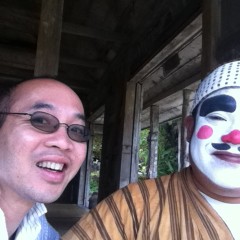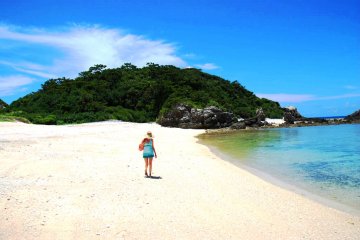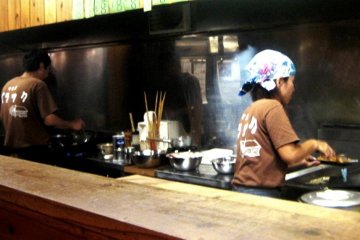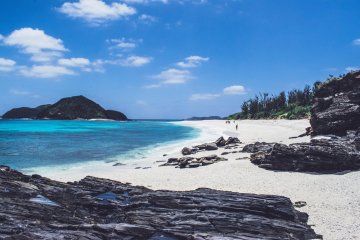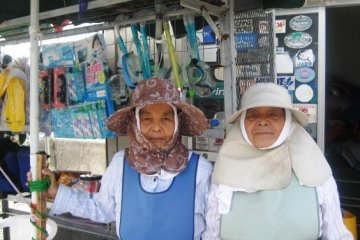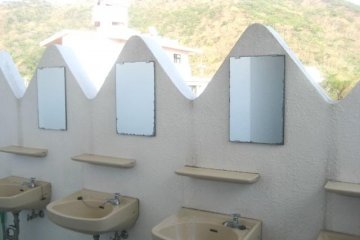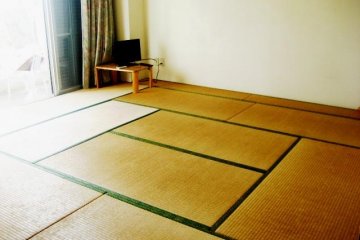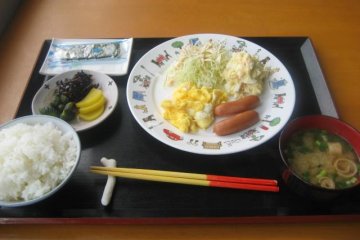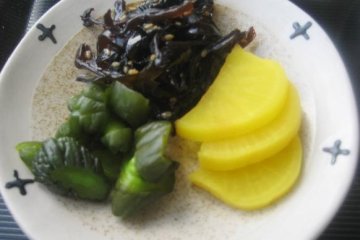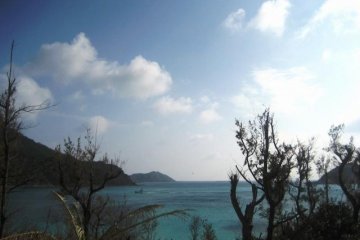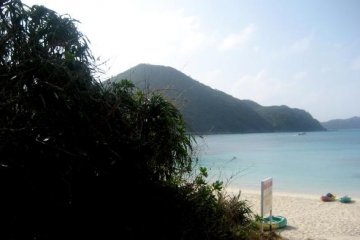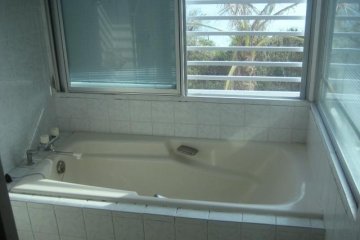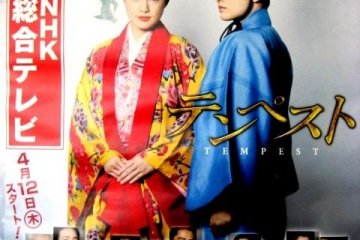The Pension Southern Cross refuses to be typecast. Is it a home stay, a youth hostel, a bed and breakfast, ryokan or beach front resort? It is all of them and yet none of them at the same time.
The owner Mr. Miyahira is a legend in his own right in this neck of the woods. A suntanned grandfather in his sixties, he evokes images of Santiago, the fisherman in the novel “The old man and the sea”, his face weathered from many years in the sun and salty air, a man of few words, and more comfortable with his tools than fluid poetry or slick marketing.
It is this very lack of slickness or brand identity that draws sea changers and escapees to this guesthouse cum youth hostel. It is up to the guest to decide what this place is, one that would be different for every guest. You have to make an effort to find this place, from making phone reservations in limited English to working out the guesthouse sign on the complementary minibus pick up from the ferry wharf. The mini pick up bus has a sign for Southern Cross, but in Japanese (“サザンクロス”).
Mr. Miyahira knows this guesthouse like the back of his hand, and there is no need to keep procedures or manuals. On the makeshift reception desk, otherwise known as the kitchen bench, a dog eared diary is filled with scribbled booking notes, and everything runs smoothly, despite of not having a sophisticated internet booking system. He may have not heard of Wi-Fi and probably won’t stop you from smoking, but why smoke when you can breathe in the tropical sea breeze and let your stresses float away.
He knows everyone in this remote beach shack of a village, and being a block of just nine rooms, every guest as well. Between him and his son, they personally pick up every guest from the ferry wharf over the hill on the other side of the island, even though the village’s only shuttle bus meets each ferry. Fortunately for him, there are only three ferries a day, giving him more time to potter around the grounds, or go fishing.
While the words Southern Cross imply some Australian beach resort, the dining room is filled with old Japanese beer posters with young Okinawan beauties and pictures of the island wildlife. The posters and photographs of dangerous looking snakes and octopuses only added to the sense of remoteness and adventure. One could imagine hacking through the jungle with Habu snakes lurking in the depths; however you would be very unlucky to encounter one, especially if you are careful and keep to the well-trod paths.
The decor of the upper floor rooms are very much in keeping with the owner’s personality, being clean and simple in a no nonsense kind of way. The bare walls in muted hues and neat tatami floor keep you focused on the task at hand, which is to gaze at the still aquamarine waters of Aharen Beach just beyond the balcony. You can’t exactly jump off the balcony into the ocean, but the waterfront rooms allow you to get wet in less than a minute. The only concession to modernity is their plan to renovate their rooms this year. I think the ensuite bathrooms in the ocean view rooms are just fine as they are despite their aged patina.
Downstairs is a communal dining area and shower block, set up much like a high school dormitory. In fact there was a high school group staying when I was there, but they were very well behaved. A simple homemade Japanese breakfast and dinner are available for a small charge. Otherwise, the lively Baraku cafe nearby serves counter style meals.
Like the old man, this place is like a rough diamond with a heart of gold. Soon I felt like family, and they were kind enough to loan me a cap and sunscreen lotion when I went kayaking, which was a lifesaver, for the Okinawan sun can be deceptively fierce, even at the end of summer. In the summer months, especially the Obon public holidays, the town is abuzz with activity, unless you are unlucky enough to encounter a typhoon in September. I can imagine coming back again and lying on a hammock on the beach at sunset.


